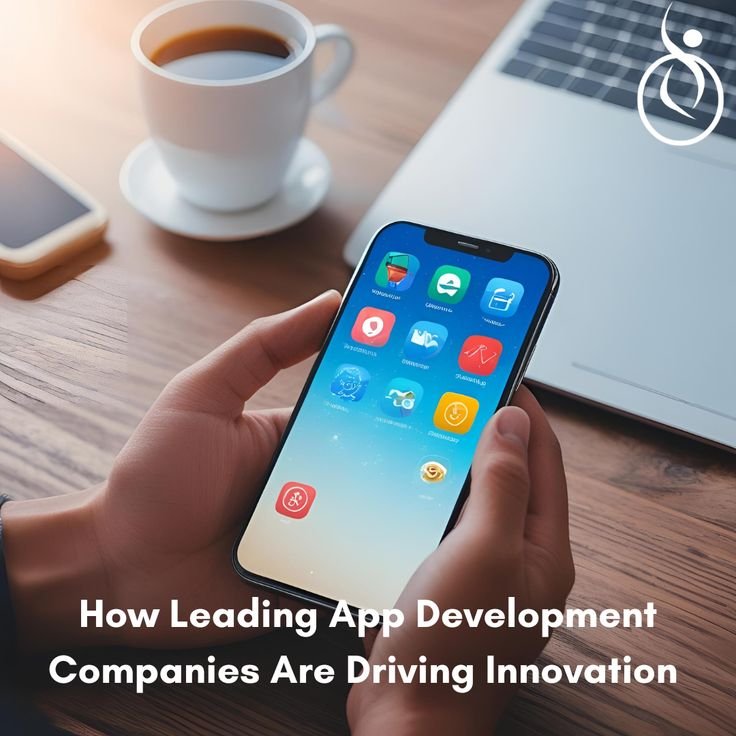The Evolution of Mobile Apps: Revolutionizing the Way We Live, Work, and Play
The smartphone is more than just a communication device; it has become an integral part of modern life. From navigating busy city streets to managing finances, tracking fitness goals, and even controlling home appliances, mobile apps have permeated every aspect of daily living. With over 5 million apps available on the Apple App Store and Google Play Store combined, it’s no surprise that mobile apps are now central to how we interact with technology.
In this article, we will delve into the evolution of mobile apps, how they have transformed industries, and what we can expect in the future. The journey of mobile apps has been marked by innovation, increasing user demands, and the constant desire to make life easier, faster, and more connected.
A Brief History of Mobile Apps
The first major breakthrough in mobile apps came with the advent of the iPhone in 2007. Prior to that, mobile phones were primarily used for calling, texting, and, in some cases, playing simple games. The iPhone’s introduction marked the beginning of a new era in mobile computing.
In 2008, Apple launched the App Store, offering a platform where developers could create and distribute their apps directly to users. This move laid the foundation for the app economy, which has grown exponentially ever since. Shortly thereafter, Android followed suit, and the two major platforms—iOS and Android—became the dominant players in the mobile app market.
At the time, mobile apps were basic, offering relatively simple functionality. They were typically games, weather apps, and calculators. However, as smartphones grew more powerful, so did the apps. Today, we have complex, multi-functional apps that cater to virtually every aspect of modern life.
How Mobile Apps Have Transformed Industries
1. Healthcare
Mobile health apps, often referred to as “mHealth,” have had a profound impact on the healthcare industry. These apps help users track their health and fitness goals, monitor chronic conditions, and even communicate with doctors remotely. Telemedicine apps have allowed healthcare providers to consult with patients from a distance, breaking down barriers to healthcare access, especially in rural areas.
Apps like MyFitnessPal allow users to log meals and track calories, while others like Fitbit and Apple Health monitor physical activity and vital signs. The rise of these apps has empowered individuals to take charge of their health and wellness, improving overall outcomes.
2. Finance
The financial industry has seen a massive shift thanks to mobile apps. Gone are the days when you had to visit a bank branch to conduct transactions or check your balance. Now, financial institutions and independent apps provide services that allow individuals to transfer money, check accounts, invest, and even manage budgets, all from the convenience of their smartphones.
Apps like Mint, PayPal, and Venmo have made managing finances more accessible and user-friendly. Digital wallets like Apple Pay and Google Pay have simplified payments, while apps like Robinhood have made investing more approachable for newcomers.
3. E-commerce
Mobile shopping has become a dominant force in the retail industry. With apps like Amazon, eBay, and Etsy, users can shop for anything—from groceries to gadgets—right at their fingertips. The rise of mobile apps in e-commerce has led to a shift from traditional brick-and-mortar stores to online platforms.
The personalization features integrated into these apps have enhanced the shopping experience, offering users recommendations based on their browsing history and preferences. Notifications about sales, product launches, and limited-time offers keep users engaged and eager to return.
4. Education
Mobile apps have revolutionized the way we approach education. With apps like Duolingo, Khan Academy, and Coursera, users can access lessons, quizzes, and educational content from anywhere in the world. This has opened up learning opportunities for millions of people who might not have had access to formal education.
Language learning apps like Duolingo have made learning a new language accessible and fun, while platforms like Udemy offer courses on virtually any topic. In addition, mobile apps have empowered schools and universities to offer remote learning solutions, which has become increasingly important in the age of COVID-19.
5. Transportation
Transportation apps like Uber, Lyft, and Google Maps have changed the way we travel. No longer do we need to hail a taxi on the street or rely on paper maps to find our way. Ride-sharing apps have disrupted the traditional taxi industry, making it easier and more affordable to get from point A to point B.
Navigation apps like Google Maps and Waze have revolutionized the way we plan our journeys, offering real-time traffic updates, route suggestions, and even alternate routes to avoid congestion. The seamless integration of GPS technology with mobile apps has made travel more efficient, saving users both time and money.
The Future of Mobile Apps: What’s Next?
As mobile app usage continues to grow, so does the innovation surrounding them. Here are some trends to look out for in the future:
1. Augmented Reality (AR) and Virtual Reality (VR)
Augmented and virtual reality are expected to play a significant role in mobile apps in the coming years. From gaming to shopping, AR and VR have the potential to create immersive experiences that were once unimaginable. Apps like Pokémon Go have already shown the power of augmented reality, while virtual reality apps are pushing the boundaries of gaming and entertainment.
2. Artificial Intelligence (AI) and Machine Learning
Artificial intelligence is already being integrated into many mobile apps, from voice assistants like Siri and Google Assistant to personalized recommendations in shopping and streaming apps. As AI continues to evolve, it will become even more integral to the way apps function, making them smarter, more intuitive, and more efficient.
3. 5G Connectivity
The rollout of 5G networks is set to drastically improve the speed and performance of mobile apps. With faster internet speeds, apps will be able to deliver more seamless experiences, especially for data-heavy applications like gaming, video streaming, and augmented reality.
4. Privacy and Security
As mobile apps become more integrated into our lives, privacy and security will continue to be major concerns. With data breaches and privacy violations making headlines, app developers will need to prioritize user security. Expect to see more advanced encryption methods, two-factor authentication, and privacy-focused apps in the future.
5. Integration with IoT (Internet of Things)
As more devices become interconnected through the Internet of Things, mobile apps will serve as central hubs for managing smart devices. From controlling the temperature in your home to managing your smart refrigerator or car, the potential for IoT-driven mobile apps is vast.
Conclusion: The Power of Mobile Apps
Mobile apps have come a long way since the days of basic games and utility tools. Today, they are indispensable in nearly every aspect of our lives. From healthcare and finance to transportation and education, mobile apps have transformed industries and enhanced the way we live, work, and play.
As technology continues to evolve, mobile apps will only become more advanced, offering new possibilities and improving our daily experiences. Whether you’re managing your health, tracking your finances, shopping for products, or simply staying connected with others, mobile apps are here to stay—and they will continue to shape the future of our digital lives.











